You’d be surprised at the number of people that don’t know what macronutrients are!
So, let’s dive in!
What are macros?
The abbreviation is short for macronutrients.
Macros are protein, fat, and carbs. All foods are made up of one or a combo of the three macronutrients. Understanding what you eat is imperative, and it helps us understand our own unique nutritional needs. << Read that again!
These 3 macros (protein, carbs, and fats) provide the energy needed to sustain life! ALL three are important!
Furthermore, no single macronutrient such as carbohydrates, causes you to gain fat (weight) or lose it. We gain weight or lose weight based on our energy (calorie) balance. Again, we gain weight when we eat too much energy for our bodies over time.
Macros make up the calories/calories are made up of macronutrients.
Calories are energy, and energy comes from the foods that we eat. Calories are units of energy!
The foods we eat have calories, whether you track, log, count em, eat clean, eat keto, etc.
I think it’s important to be aware of the food that you are eating. What constitutes a protein, carb, or fat source?
For example, A LOT of folks think Peanut Butter is a good source of protein. It’s not, my STRONG friends. It is a fat source first with some protein in it!
So let’s dive into each of the macronutrients – macros for short.
We will cover what proteins, carbs, and fats are! And the last macro, which is Alcohol. And no, alcohol is not calorie-free!
Protein –
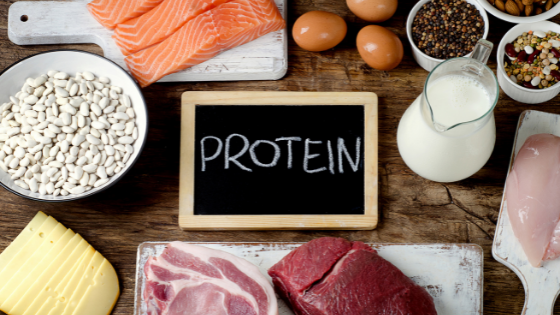
- 4 calories per gram (energy value)
- 1 gram of protein = 4 calories
- Proteins are made up of amino acids
Protein is important for:
- Satiation and appetite control
- Muscle building – protein is the building block of muscle
- Body composition
- Muscle repair and recovery
- Strengthening our bones
- Retaining your muscle mass while eating in a calorie deficit to lose body fat.
Examples of Protein sources:
- Chicken
- Turkey
- Fish
- Beef
- Protein Powder
- Flank Steak
Carbs –
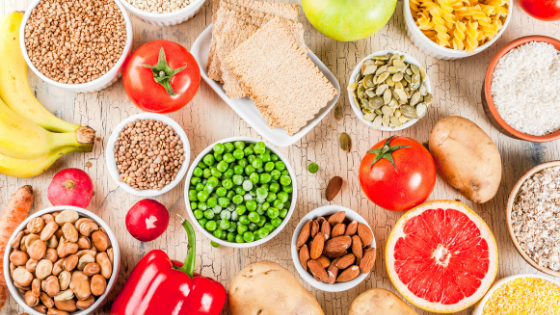
- 4 calories per gram (energy value)
- 1 gram of Carbs = 4 calories
- For every gram of carbohydrates the body stores 3-4 grams of water, hence the word CARBO-HYDRATE. The body uses carbs for energy!
- Fun fact – when you go on a low carb diet you lose water weight quickly. It’s because carbs have water in them, so this is why you’ll see a swift loss of weight initially, but it’s not fat loss. So remember that the next time you set out to do an extreme diet where you lower carbs too low or when you cut them out completely. More on the difference between weight and fat loss here!
Carbs are important for:
- The body’s preferred & primary energy source
- Muscle gains
- Muscle building process – they aid in sparing muscle and are protein sparing
- Digestion
- Performance and recovery
- Our brain
- They provide fiber, vitamins, and minerals
Examples of Carb sources – starch, fruit, and veggies
- Oatmeal
- Potatoes
- Rice
- Beans/Lentils
- Fibrous veggies such as broccoli, spinach, brussels sprouts
- Fruits such as berries, bananas, oranges, watermelon
Fats –
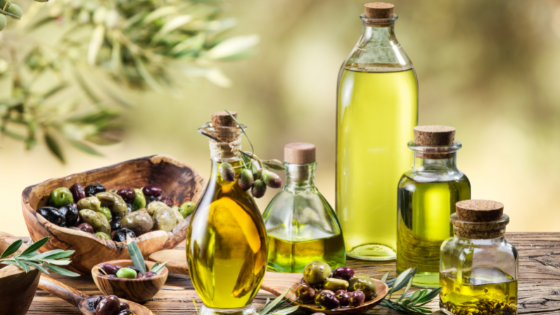
- 9 calories per gram (energy value)
- 1 gram of fat = 9 calories
- Lol, so sad that fat is 9 calories per gram. Am I right, or am I right? We get just a little bit of a fat source for a costly amount of calories.
Fats are important for:
- Helps us absorb vitamins – fat-soluble vitamins – A, D, E, and K
- Cushioning for our body’s joints and organs
- Our hair, skin, and nails
- Regulates/balances our hormones
- Fatty acids
- Provides energy
- Healthy cell function
Examples of fats:
- Olive Oil
- Butter
- Ghee
- Avocado
- Nuts/seeds
- Nut butters
- Cheese
Alcohol is the 4th macronutrient –

- 7 calories per gram
- 1 gram of alcohol has 7 calories
- Alcohol can be accounted for as a carb, a fat, or a combo of both, based on how many calories are in the alcoholic beverage
We all love our cocktails, glasses of wine, and some of you love them nasty Truly and White Claws.
Alcohol, as we know, has no nutritional value, but it sure can fit into your lifestyle – in moderation. There has to be room for things that we enjoy!
So, that’s that. Let me know if you found this helpful. Also, if you are interested in how to approach your fat loss phase without extremes, check out my last blog here!
Lastly, if you would like to have some support and accountability on your health journey, I got you… book a STRONGER You Connection Call with me to see if we are a good fit in working together!

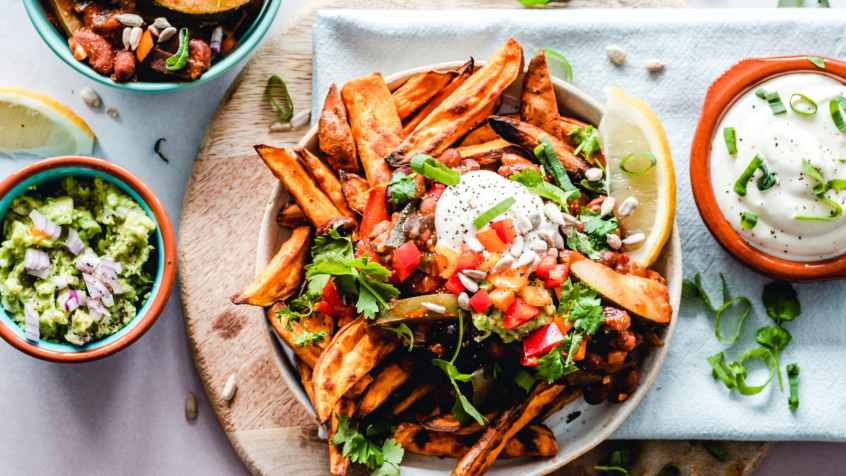
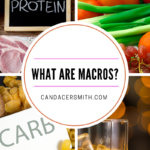
21 Comments on “What the heck are macros?”
Wow, incredible blog layout! How long have you ever been running a blog for?
you made running a blog glance easy. The whole glance of your website is wonderful, as
neatly as the content material! You can see similar:
sklep internetowy and here
sklep
My partner and I stumbled over here different web page and thought I might check
things out. I like what I see so i am just following you.
Look forward to going over your web page for a second time.
I saw similar here: e-commerce
and also here: sklep online
Hi colleagues, good article and fastidious urging commented at this
place, I am truly enjoying by these. I saw similar here:
Sklep internetowy
It’s remarkable to go to see this web site and reading the views of all mates regarding
this piece of writing, while I am also eager of getting
know-how. I saw similar here: Ecommerce
Wow, incredible blog structure! How long have you been running a blog
for? you make running a blog glance easy. The overall look
of your website is great, as smartly as the content!
You can see similar here najlepszy sklep
Wow, awesome blog structure! How lengthy have you been blogging for?
you made blogging glance easy. The overall glance of your
site is wonderful, as well as the content!
You can see similar here najlepszy sklep
Wow, incredible weblog format! How lengthy have you ever been blogging
for? you make running a blog glance easy. The entire look of your site
is magnificent, let alone the content! You can see similar
here ecommerce
Hi there! Do you know if they make any plugins to assist with Search Engine Optimization? I’m trying to get my blog to
rank for some targeted keywords but I’m not seeing very good results.
If you know of any please share. Thank you! You can read similar blog here: Najlepszy sklep
Hey! Do you know if they make any plugins to assist with Search Engine Optimization? I’m trying
to get my blog to rank for some targeted keywords but I’m not seeing very good results.
If you know of any please share. Appreciate it! You can read similar article here: Najlepszy sklep
It’s very interesting! If you need help, look here: ARA Agency
It’s very interesting! If you need help, look here: ARA Agency
Tant qu’il y a un réseau, l’enregistrement en temps réel à distance peut être effectué sans installation matérielle spéciale.
Lorsque vous oubliez le mot de passe pour verrouiller l’écran, si vous n’entrez pas le mot de passe correct, il sera difficile de le déverrouiller et d’y accéder. Si vous trouvez que votre petit ami / petite amie est suspect, vous avez peut-être pensé à pirater son téléphone Samsung pour obtenir plus de preuves. Ici, nous vous fournirons la meilleure solution pour déchiffrer le mot de passe du téléphone mobile Samsung.
Good day! Do you know if they make any plugins to assist
with SEO? I’m trying to get my blog to rank for some targeted keywords but
I’m not seeing very good gains. If you know of any please share.
Many thanks! I saw similar article here: Scrapebox List
Howdy! Do you know if they make any plugins to assist with Search Engine Optimization? I’m trying to get my site
to rank for some targeted keywords but I’m not seeing very good gains.
If you know of any please share. Thanks! You can read similar article here:
Backlinks List
Hello there! Do you know if they make any plugins to assist with SEO?
I’m trying to get my website to rank for some targeted keywords but I’m not seeing very
good success. If you know of any please share.
Appreciate it! You can read similar text here:
Auto Approve List
Hey there! Do you know if they make any plugins to help
with SEO? I’m trying to get my website to rank for some targeted
keywords but I’m not seeing very good gains. If
you know of any please share. Many thanks! You can read similar blog here:
Scrapebox List
Wow, superb blog layout! How lengthy have you ever been blogging for?
you made running a blog glance easy. The whole look of your web site is great, as neatly as the content material!
You can see similar here e-commerce
Wow, awesome blog format! How lengthy have you been running a blog for?
you made running a blog glance easy. The full look of your site is great, as neatly as the content!
You can see similar here dobry sklep
Wow, marvelous blog structure!
How long have you been running a blog for?
you made running a blog glance easy. The full glance of your web site is
great, as smartly as the content material! I read similar
here prev next and
it’s was wrote by Kirstie77.
Wow, incredible blog structure!
How long have you been running a blog for? you make blogging look easy.
The entire glance of your site is great, as smartly as the content material!
I read similar here prev next and it’s was wrote by Dennis86.